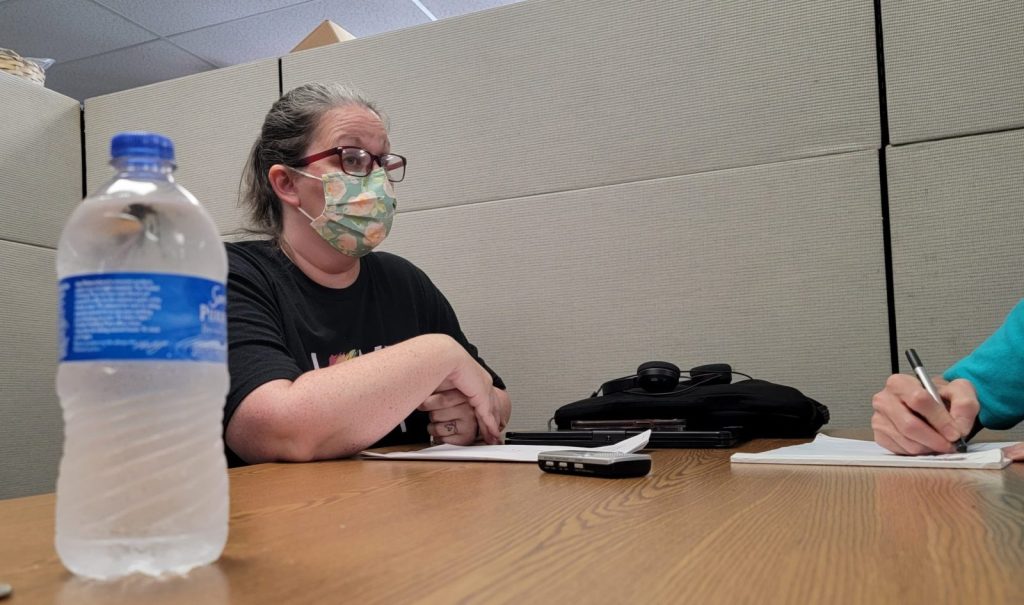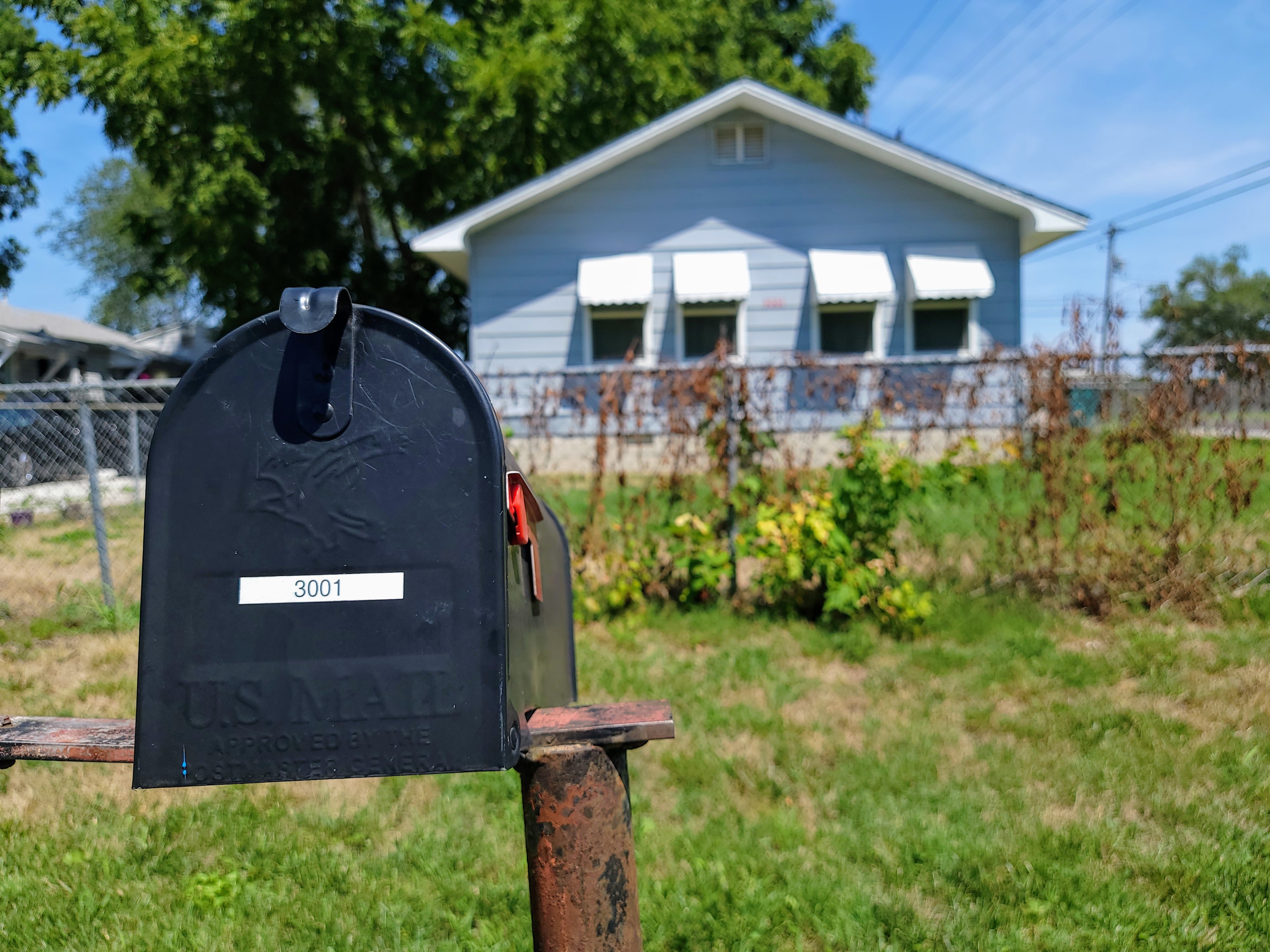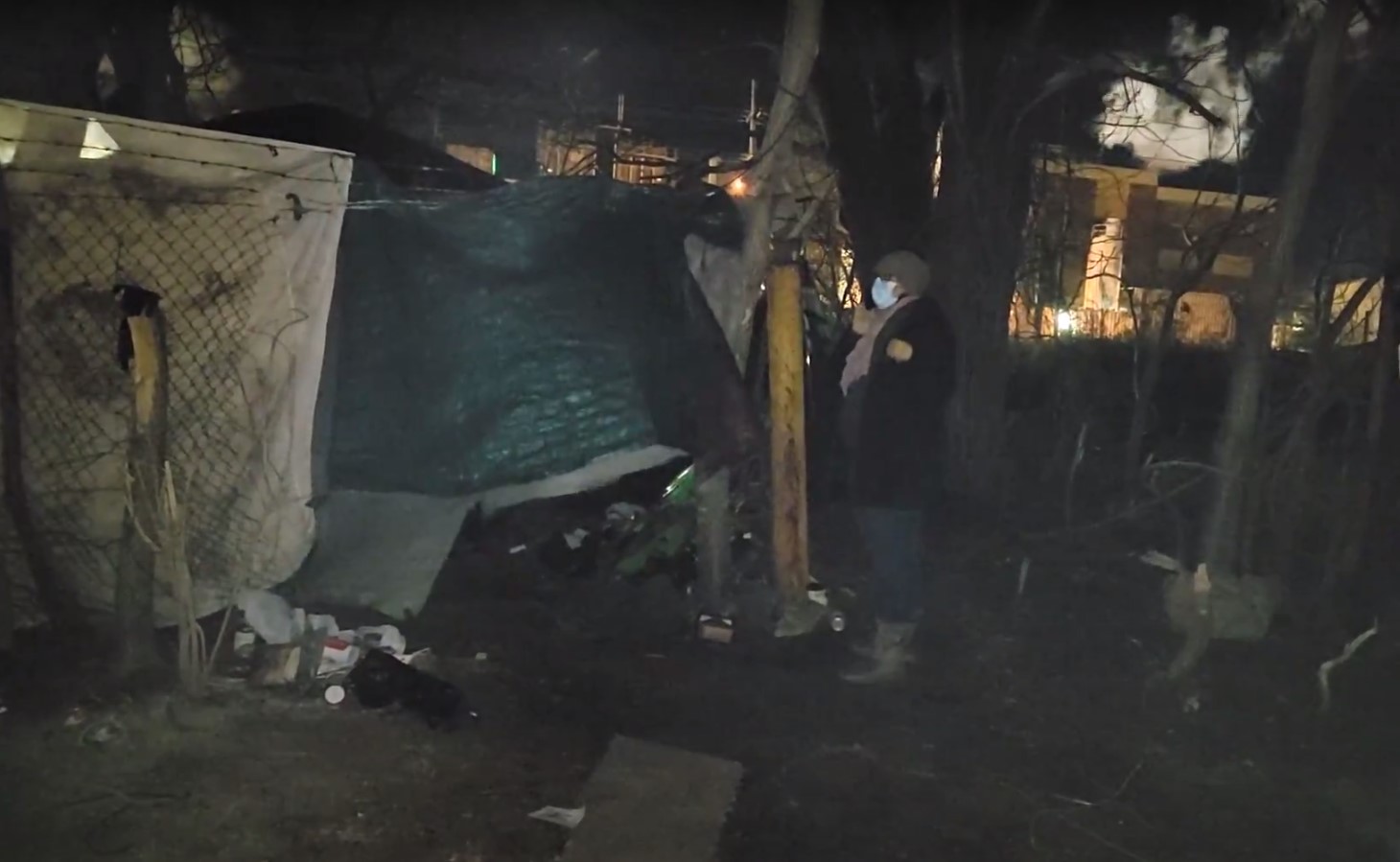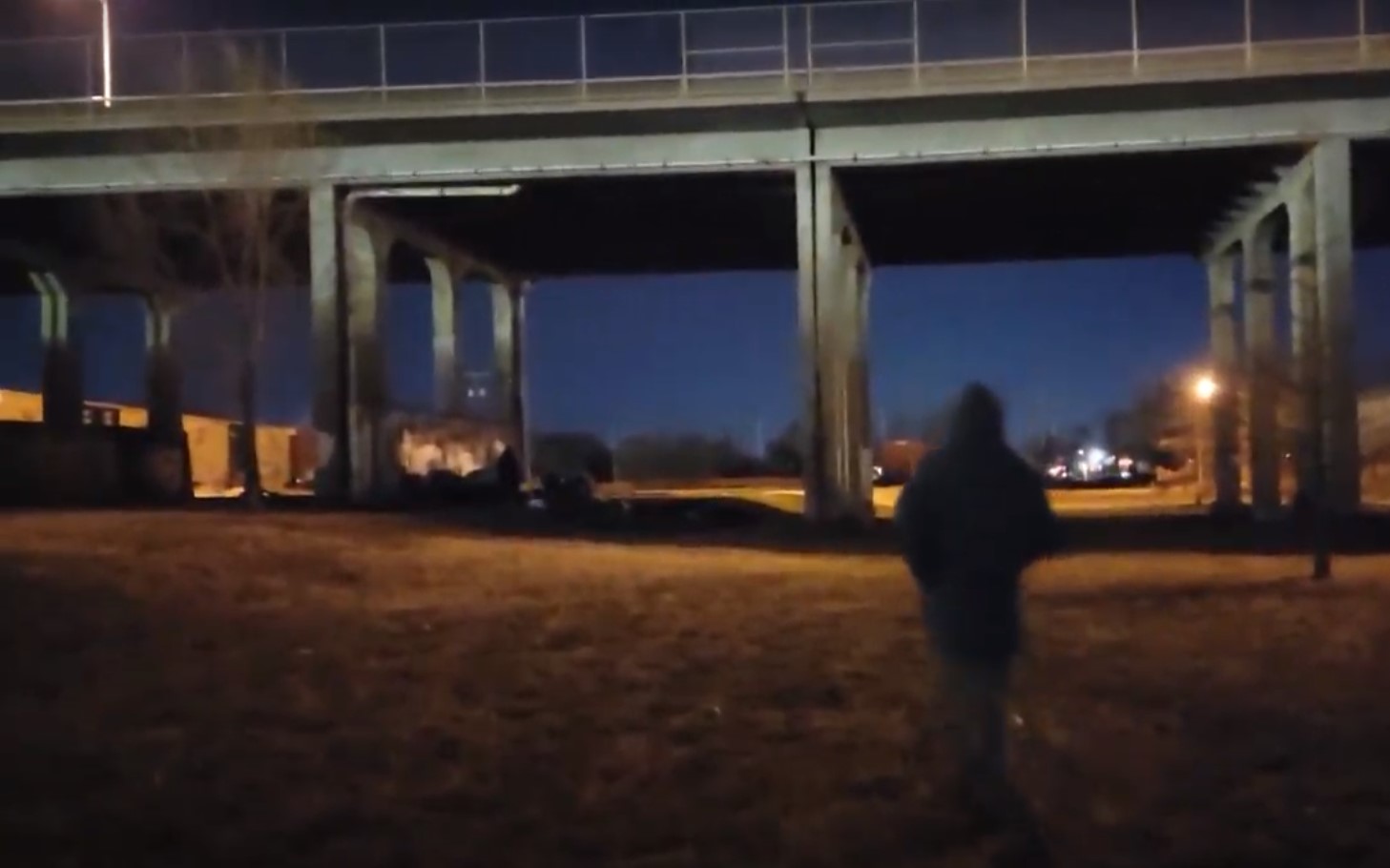Citing a new law that will criminalize unauthorized camping on state-owned land as the primary reason, The Connecting Grounds is “pausing” plans to build two campuses of transitional supportive sheltering.
The Connecting Grounds Church has been serving the Ozarks’ unsheltered community since 2018. In addition to the church, it operates an outreach center where people can get services including medical care, clothes and bus passes (when available). It also has outreach teams who reach people living on the streets, in vehicles, motels and camps.
Pastor Christie Love announced the decision to rescind the organization’s request for $4 million in American Rescue Plan Act (ARPA) funds in a Facebook post this week. Instead, The Connecting Grounds will be submitting alternative requests that will expand the organization’s respite care program and will help homeless families.
“For us, we’re just looking at the landscape right now. We’re looking at the growing need in our community,” Love said on Friday. “We’re looking at the new legislation that (House Bill) 1606 puts on everyone, and there’s just not enough resources to do everything and do everything well.
“We’ve come to the very hard decision that it just doesn’t seem like the right time to try to push Roots as a project right now,” Love said. “We recognize that between fulfilling 1606 — and hearing some of the things that the consultants that were hired by the City and the Continuum (of Care) really kind of elevated — I think there’s some different places that we can focus on right now.”
Love said she asked city leaders if she could rescind the request for $4 million in ARPA funds and instead submit other ARPA requests. Details about those other requests for five smaller projects will be announced when they are finalized, Love said.
Earlier this year, Love announced the now-on-hold project to build two shelters, which was called Roots of Community. She had hoped to raise $12 million to complete the project.
“This bill criminalizes the struggle to survive for community members without stable shelter across the state,” a statement from The Connecting Grounds reads, in part. “In addition, HB 1606 issues an unfunded mandate to communities to create dedicated 24/7 campgrounds with resources for unsheltered individuals. This bill places expensive requirements on state-ordered campgrounds but provides local governments with no financial support or funding to fulfill this requirement …”

The new Missouri law affecting unsheltered people
The new law (HB 1606) reads in part: “No person shall be permitted to use state-owned lands for unauthorized sleeping, camping or long-term shelter. Any violation shall be a Class C misdemeanor; however, the first offense shall be a warning with no citation.”
The law goes on to say that the Attorney General has “the power to bring a civil action to enjoin the political subdivision from failing to enforce any ordinances prohibiting public camping, sleeping, or obstruction of sidewalks.”
In addition to making it a misdemeanor crime to sleep or camp on state-owned property, the bill says that political subdivisions, primarily municipalities, must maintain a per-capita homelessness rate at or below the state average or enforce ordinances that comply with the law, or could face a loss in state funding or civil action by the Attorney General.
According to the statement, Connecting Grounds’ leaders believe the new law has “dramatically changed the dynamics of how ARPA funds will need to be spent in our city and the level of innovation that can be used to address the growing crisis on the streets of our community.”
Love said on Friday that she’s already reached out to the different faith partners that have made donations to the Roots of Community project and explained that those monies would be used to pay off the mortgage on the Connecting Grounds’ respite house.
“Right now, that’s the only property we owe a mortgage on. If we can get that paid off, that’s $700 a month that would go into our outreach fund,” Love said, “which would allow us to just meet a lot more immediate needs every month.”

The respite house is located behind the Outreach Center and provides a place where unsheltered can stay while they recuperate from sickness or injury. The Connecting Grounds purchased the house about a year and a half ago.
“We have treated kidney dialysis issues, cancer patients, amputation patients,” she said. “We’ve had 18 patients in there since it opened and the vast majority of those patients have gone on to find housing or shelter in different programs. Very few of those individuals have actually been discharged to the street.”
Hopes still high for Roots of Community
Back in March, Love described the Roots of Community project as having two separate campuses each being built in two phases.
“Phase one at both campuses would allow us to purchase the land, would allow us to build one apartment complex at each site and one community center at each site,” Love had said. “One of those sites would be for families with children. And so that community center would actually be more of like a day-care center, a child-care center that would offer 24-hour child care because we have some parents that don’t work during regular hours.”
Phase one would have created 27 apartments at that location. The other campus would have been for adults or couples without children. That shelter would have been very similar to the family shelter, but its first floor would be designated for medical respite with 20 beds.
On Friday, Love was clear that she is not giving up on her dreams for the Roots of Community project.
“We are all hopeful that this is not a not ever for Roots,” she said. “But it’s not right now.”

Springfield and Greene County likely to lose funding
Local advocates and service providers have voiced concerns about the portion of the law that says political subdivisions must maintain a per-capita homelessness rate at or below the state average or enforce ordinances that comply with the law, or could face a loss in state funding.
According to the Department of Housing and Urban Development (HUD), Missouri’s per capita rate of homelessness in 2021 was .000834. The per capita rate of homelessness for the Springfield/Greene, Christian and Webster County Continuum of Care was .00134 — well above the state’s average.
The National Coalition for Housing Justice (NCHJ) has expressed concern over the ramifications of the bill, particularly for the urban communities in the state.
“It is highly likely that one year after this law is initiated communities such as St. Louis, Kansas City, Springfield, Jefferson City, Columbia and even Branson will be under threat to lose their state funding for housing/homelessness because they will not be able to show any progress on reducing the numbers of homeless people,” a statement from the National Coalition for the Homeless reads.

Michelle Garand, vice president of Affordable Housing and Homeless Prevention with Community Partnership of the Ozarks, pointed out in an earlier interview that the language in the bill is “not specific in any way,” and it’s not clear what is meant by “state funding.”
Folks are wondering if that could possibly include federal funds that pass through the state, Garand said.
“That could mean a lot of money. We don’t know where it ends,” she said last month. “If it’s for any homeless services, does that mean just housing services or does it mean mental health services for the homeless? There’s a lot. The scope is pretty wide.”
Rep. Crystal Quade said she is working to get clarification from the Governor's office on what funding is at risk and what can be done to save it.

